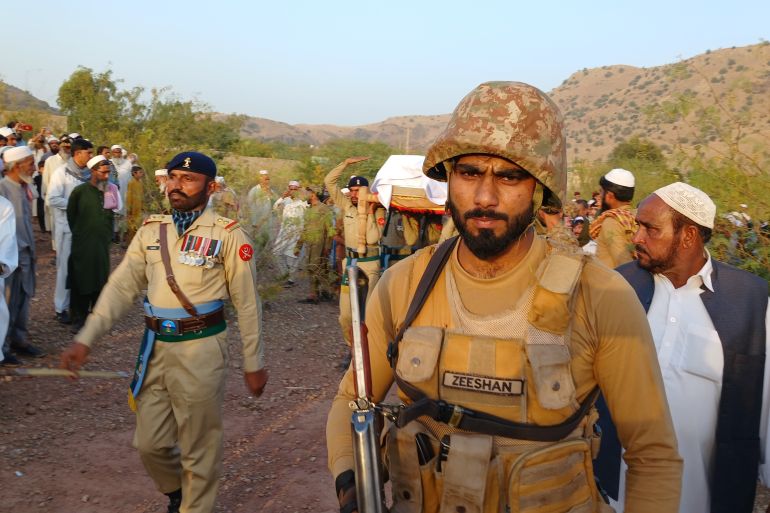Impasse leaves Afghanistan-Pakistan peace talks mired in uncertainty
Three days of negotiations in Istanbul fail to yield breakthrough, but both sides maintain ceasefire is holding.

By Tim Hume and News Agencies
Published On 28 Oct 202528 Oct 2025
Save
The peace process between Pakistan and Afghanistan is mired in uncertainty after the pair reportedly failed to find a breakthrough during three days of negotiations in Istanbul.
State media in each country blamed the other on Tuesday for the lack of agreement on a long-term truce in Turkiye. The talks were spurred after tensions between Pakistan and Afghanistan’s Taliban rulers over armed groups operating in the latter resulted in deadly cross-border hostilities earlier this month.
Recommended Stories
list of 4 itemsend of list
Dozens have been killed on both sides of the border in the deadliest fighting between the neighbours since the Taliban took power in 2021.
The negotiations followed a ceasefire agreement mediated by Qatar and Turkiye. However, progress towards a long-term peace appears to have stalled.
It was not clear on Tuesday afternoon whether the talks had concluded or would continue into a fourth day. However, it was reported that the delegations from both countries remained in Istanbul.
Quoting unnamed Pakistani security officials, The Associated Press news agency reported that Turkish mediators were continuing efforts to break the deadlock and allow talks to resume.
Pakistan Television reported that a “last-ditch effort” was being made to resolve the issues.
However, the Reuters news agency reported that the talks had ended without a resolution, according to sources from both sides.
TTP at heart of deadlock
The major sticking point in the negotiations has been Kabul’s reluctance to commit to rein in the Pakistan Taliban (TTP), a separate group from Afghanistan’s rulers that is hostile to Pakistan, according to reports.
Advertisement
Islamabad says ,the TTP operates with impunity inside Afghanistan, where its leadership is now based.
Pakistan Television reported that the Afghan delegation had “repeatedly agreed to Pakistan’s demand for concrete and decisive action against the TTP and terrorism”, but, following instructions from Kabul, its “stance kept changing”.
An Afghan source familiar with the talks told Reuters that they had ended after “tense exchanges” over the issue, adding that Kabul insisted it has no control over the group.
Taliban-controlled broadcaster RTA blamed Pakistan for the impasse, saying Kabul had “made every effort to hold constructive talks”, but that the “Pakistani side does not seem to have this intention”.

Both sides said the ceasefire is holding despite the impasse, and despite sporadic clashes between Pakistani troops and TTP fighters along the border.
Skirmishes over the weekend killed five Pakistani soldiers and 25 opponents, Pakistan’s military said on Sunday, describing the fighters killed as “Fitna al-Khwarij”, a term it uses for ideologically motivated armed groups suspected of being backed by foreign sponsors.
The cross-border violence earlier this month was the deadliest fighting between Pakistan and Afghanistan since the Taliban took power in the latter in 2021. It raised alarm across the region, where armed groups like al-Qaeda are trying to resurface.
United States President Donald Trump, who claims to have halted several wars since his return to the White House at the start of the year, said on Sunday that he will solve the Afghanistan-Pakistan crisis “very quickly”.

